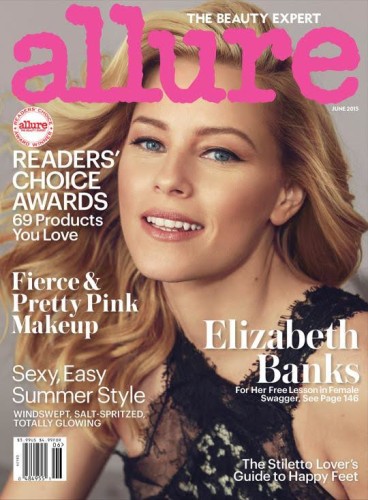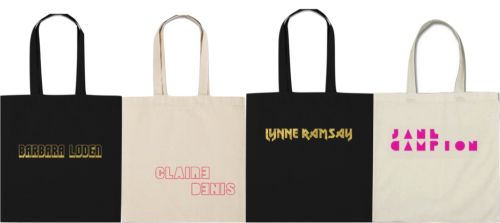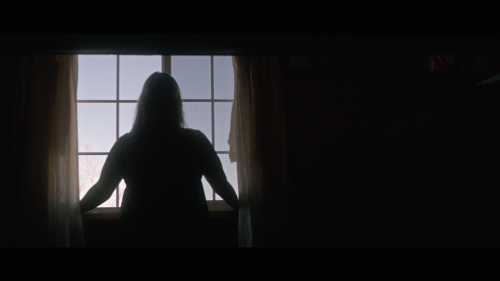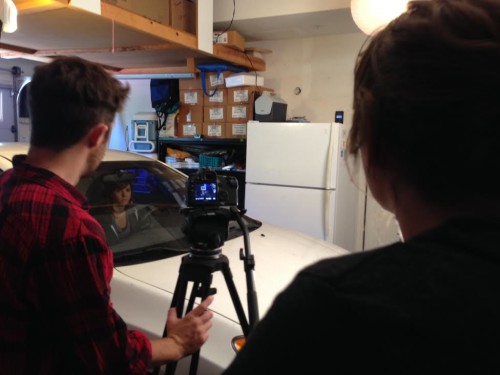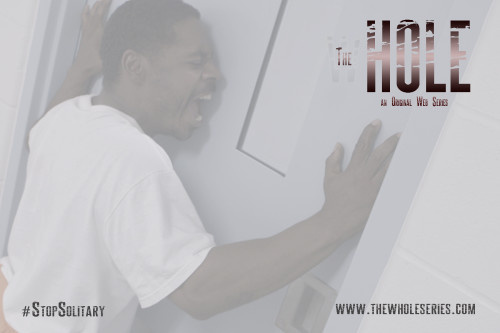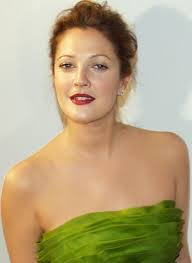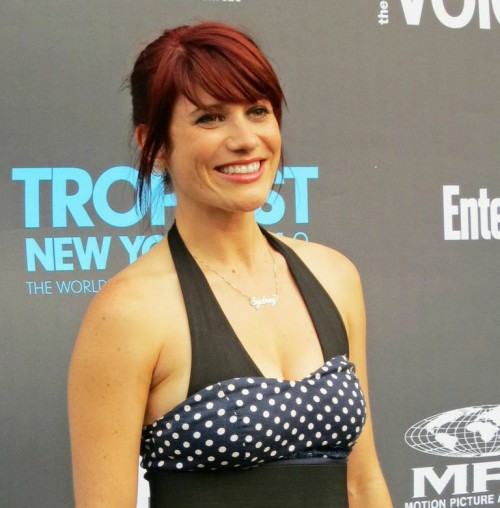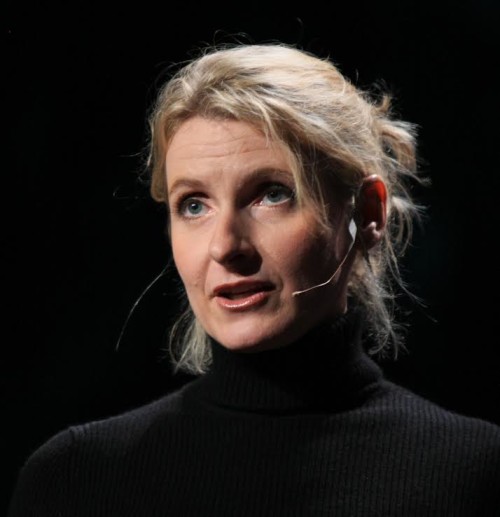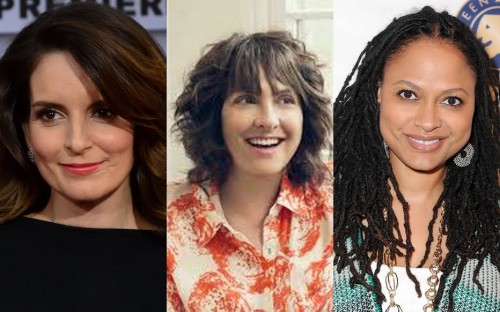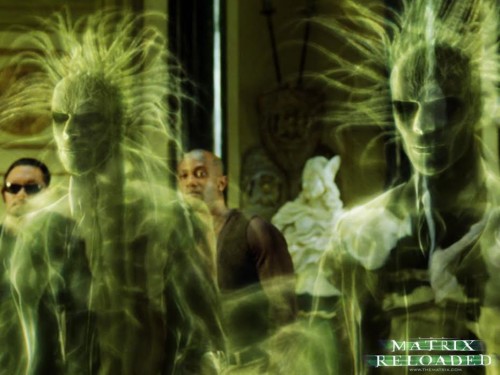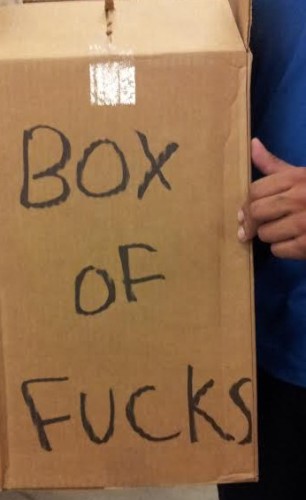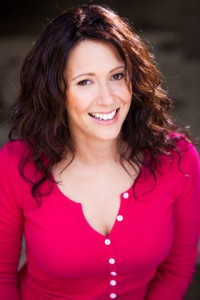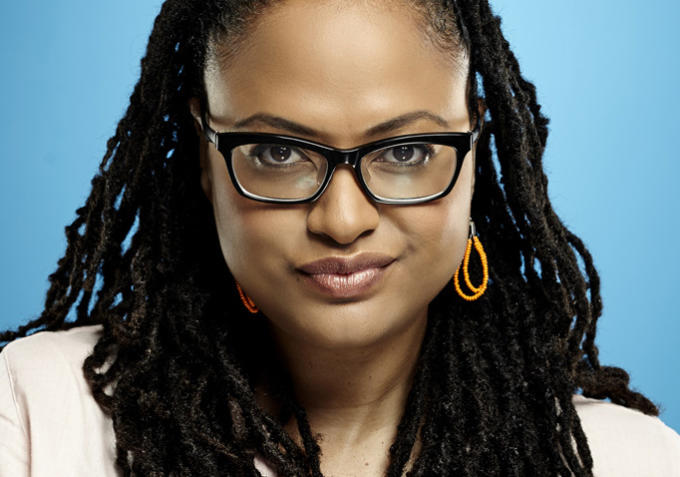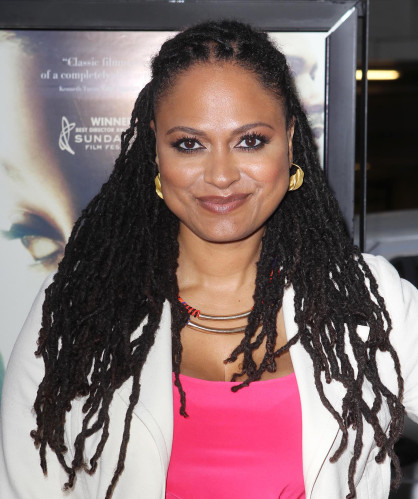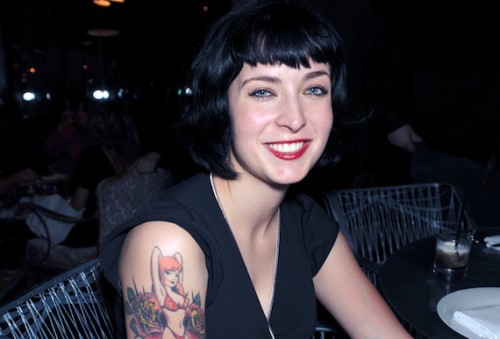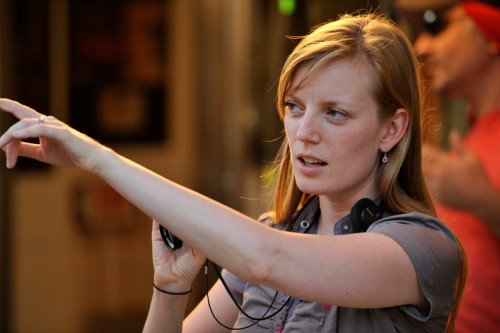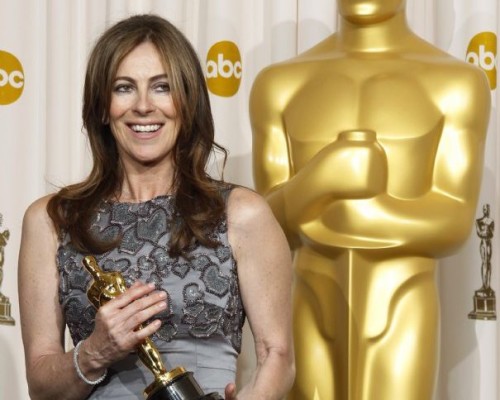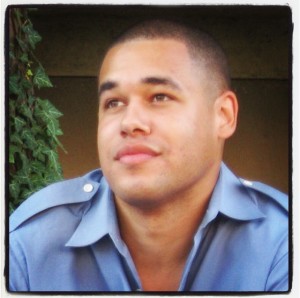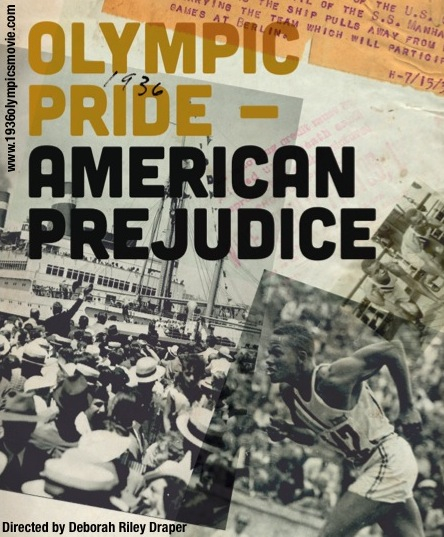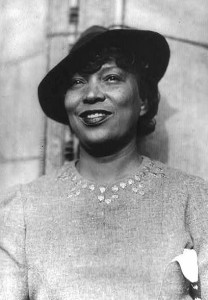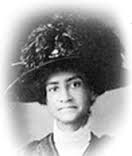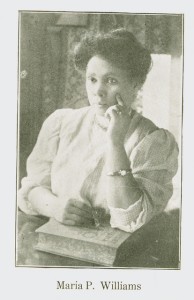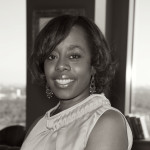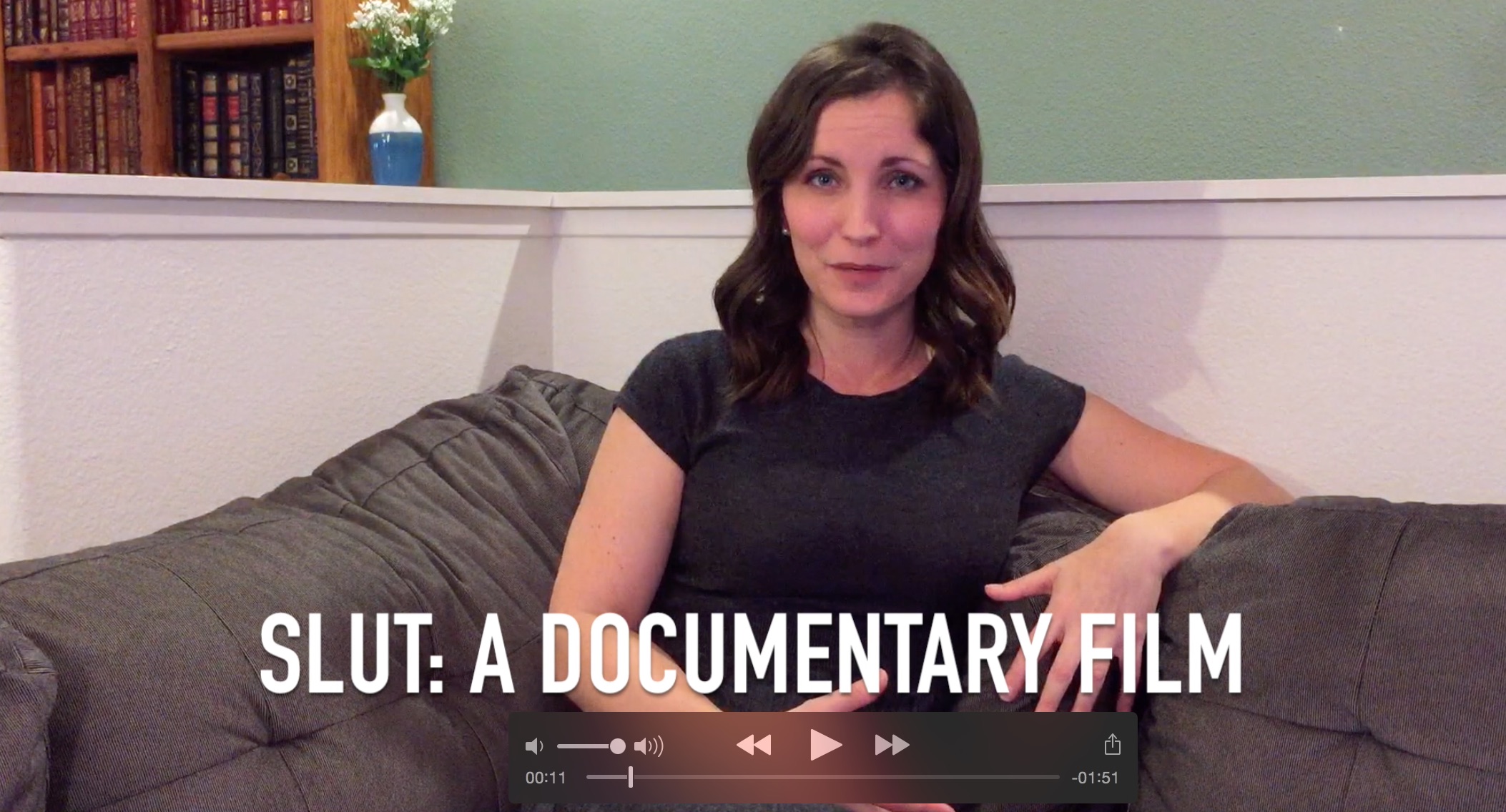This is a guest post by Jeanette Bonner, who is currently crowdfunding through Seed & Spark for her latest project.
I will admit it: I’m a beauty-magazine buyer. I want to be one of those people that shun them the way I shun impulse-buying those “Stars: They’re Just Like Us!” magazines at the grocery store. But there are certain times when it’s really ALL my brain wants to process, even though I know I should be learning about tragedy in China/ Supreme Court misdoings and failures/ who Amal Clooney is saving this month.
Occasionally, some of them have content worth reading. Many of them, like Allure and Marie Claire, have recently gone pro-fem and are really letting the world know who’s the most ass-kicking female of the moment.
May’s issue of Allure featured another gorgeous blonde starlet with fan-blown hair waves of envy, in a gorgeous dress none of us will ever own, looking wrinkle-less and flawless as usual. That lady was Elizabeth Banks.
I will begin by saying that Elizabeth Banks is totally on my radar. If you are a producer and an actress who does comedy (as I am), you will sit up and take notice when other ladies – especially comediennes – break the boy-code barrier and succeed at straddling that fine line between marketable (aka “attractive to audiences”) and powerful (aka running your own series and being a lady-boss). You can probably think of three straight off the bat. Tina Fey and Amy Poehler are the Queens, Mindy Kaling comes next. Then I would suggest Jenny Slate (who went from SNL reject to Create-Your-Own-Content baller), and then I bet your next thought is for the two Best B*tches of the Moment: Abbi Jacobson and Ilana Glazer. But I bet your thoughts don’t naturally then go to Elizabeth Banks, even though they should.

Elizabeth Banks first caught my attention in The 40-Year-Old Virgin, as the overtly promiscuous hot party-girl type. She has an orgasm in a bubble-bath in front of Steve Carrell, and I thought – “Man. That girl is fearless. It takes a lot to not only put aside your pride and have an orgasm in front of Steve Carrell, but do it in a funny way that doesn’t automatically make you want to slut-shame her and write her off. She’s a badass.” She was, of course, in a lot of things before that, Wet Hot American Summer being one of them, but after The 40-Year-Old Virgin, just like the way it seems everyone owns a green car the moment you think of buying a green car, she suddenly seemed to me to be everywhere.
I don’t need to list her credits to you to prove she’s awesome, and that’s not my point either. We all know she’s talented and Hollywood loves her and yeah she’s pretty and funny and held her own against Alec Baldwin in 30 Rock. Here’s why I have a lady-crush on her – this quote, from the aforementioned Allure interview:
“If I had to pick a theme of the things that I do,” Banks says, “it would be: Girls win.”
Pitch Perfect, a hard-core “girls win” -kinda movie, was Banks’ first hit of the production company she started with her husband. When the original director wasn’t available for Pitch Perfect 2, the studio asked Banks to direct it herself:
“Once you get offered a studio job, as a woman, it’s really hard to say no because they don’t let women do this very often,” she says. “So I knew I needed to embrace it and I couldn’t mess it up. Because if you mess it up, they don’t let you do it again, and you become representative of female directors as a whole. Like, ‘See, girls can’t do it!’’ [Allure, June 2015]
BOOM. They asked, and she stepped up to the plate. Without reservation. No one asked politely. No one had to convince her. She did not seek out permission. They offered her something with a TON of responsibility and she accepted, despite probably already being overwhelmed with producing the damn thing AS WELL AS acting in it (it’s not an easy feat to wear all three hats, as I learned with my web series, Ghost Light, for which I’m the writer, producer, and also actor).
I have often found in my life – and certainly this is true when it comes to producing my own web series – that I seek permission before I do anything. It takes me a long time to wrap my mind around a new idea. I consider myself spontaneous and risk-taking yes, but if someone offers me something outside of my comfort zone, anything that I haven’t previously decided that I can do, I don’t take action immediately. I wobble, waiting for someone to convince me. Skiing? “I’m not sure I can, I’ve never been and I hear a lot of adults have accidents their first time.” Malaysian food? “I’ll go if you tell me what to order.” How about doing something crazy, like moving to North Carolina to start a business? “What! I don’t know the first thing about starting a business. Or North Carolina!” You see what I mean.
We all do this. Psychologists say this is our ego keeping us safe, because risk equals danger, and danger equals death. I know that if some huge studio head asked me to direct a $30 million dollar movie with a cast and crew of nearly 300, I’d balk. I’d make excuses. I’d say, “I don’t know how, I don’t have enough experience, I don’t have time.” Instead, Elizabeth Banks said, “Of course I’ll do it. Because if I don’t, just by saying no, as a woman – I fail.”
Her next project as a producer is an HBO movie based on the life of tennis star Billie Jean King. In her Allure interview Banks said, “Billie Jean King’s activism is mind-boggling. She has a Presidential Medal of Freedom. She’s so inspirational.” And just like that, she’s off and running again, no doubts in her mind that anyone could tackle this film better. Because why would they? She’s a kickass, empowered, inspired, strong woman who makes her own path in this crazy industry and in her life.
As are we all, right? AS ARE WE ALL.
Jeanette Bonner is an award-winning actor, writer, and producer in NYC. She has been writing informally since the age of 5, and is now combining her love for writing with her passion for theater. In addition to Ghost Light she has written and produced the one-woman show Love. Guts. High School. It premiered at the 2012 Midtown International Theatre Festival, where it won nominations for Best Actress and Best Solo Show, and then went on to the Chicago Fringe Festival, where it was named a top ten “Critic’s Pick” by Time Out Chicago. Last year it received top reviews at the 2014 Edinburgh Fringe Festival, where she performed it 23 times (whew!). As an actor in New York, she has performed with Magic Futurebox, Manhattan Theatre Source, and Vital Theatre Company, and workshopped plays with Rattlestick Playwrights Theater, Abingdon Theatre, and Primary Stages. She has been a company member of improv troupe National Comedy Theater for seven years, and in her downtime she shows tourists around town as a licensed NYC tour guide.
